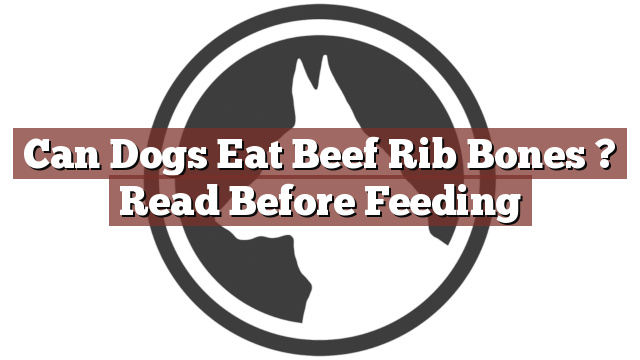Understanding Your Dog’s Dietary Needs
As responsible dog owners, it is essential to understand our furry companions’ dietary needs to ensure their overall health and well-being. Dogs, being omnivorous, have specific dietary requirements that differ from humans. While they primarily thrive on a balanced diet of meat, vegetables, and grains, it is crucial to be aware of the foods that can be hazardous to their health. One common question that arises is "can dogs eat beef rib bones?"
Can Dogs Eat Beef Rib Bones? Read Before Feeding
Can dogs eat beef rib bones? This question is often asked by dog owners who are considering giving their pets a natural, meaty treat. The answer is no; it is generally not recommended to feed dogs beef rib bones. Although dogs are known for their chewing abilities, beef rib bones pose several risks and potential dangers.
Firstly, beef rib bones can splinter into sharp pieces when chewed on, leading to serious injuries in a dog’s mouth, throat, or digestive tract. These bone fragments can cause cuts, lacerations, or even obstruct the digestive system, resulting in a potentially life-threatening situation. Secondly, the hardness of beef rib bones can lead to fractured teeth, which may require veterinary intervention. Furthermore, consuming large pieces of bone can cause constipation or blockages in dogs.
Pros and Cons of Feeding Beef Rib Bones to Dogs
While there are potential risks associated with feeding beef rib bones to dogs, some arguments favor their consumption. One of the main benefits often cited is that chewing on bones helps clean a dog’s teeth and promotes good oral hygiene. Bones can remove plaque buildup, massage the gums, and provide mental stimulation for dogs. Additionally, dogs may find bones highly enjoyable and satisfying to chew on.
However, it is important to note that alternative options, such as specially designed dental chews or toys, can provide similar dental benefits without the associated risks. These products are specifically designed to be safe for dogs to chew on and can be a healthier and less dangerous alternative to beef rib bones.
Conclusion: Considerations for Feeding Beef Rib Bones to Dogs
In conclusion, while dogs may have a natural instinct to chew on bones, it is imperative to prioritize their safety and well-being. No, dogs should not eat beef rib bones. The risks of splintering, choking, dental fractures, and digestive blockages outweigh any potential benefits. To ensure your dog’s oral health, consider safer alternatives such as dental chews or toys specifically designed for dogs. If you have any concerns or questions about your dog’s diet, it is always best to consult with a veterinarian who can provide tailored advice based on your pet’s individual needs.
Thank you for taking the time to read through our exploration of [page_title]. As every dog lover knows, our furry friends have unique dietary needs and responses, often varying from one canine to another. This is why it's paramount to approach any changes in their diet with caution and knowledge.
Before introducing any new treats or making alterations to your dog's diet based on our insights, it's crucial to consult with a veterinarian about [page_title]. Their expertise ensures that the choices you make are well-suited to your particular pet's health and well-being.
Even seemingly harmless foods can sometimes lead to allergic reactions or digestive issues, which is why monitoring your dog after introducing any new food item is essential.
The content provided here on [page_title] is crafted with care, thorough research, and a genuine love for dogs. Nevertheless, it serves as a general guideline and should not be considered a substitute for professional veterinary advice.
Always prioritize the expert insights of your veterinarian, and remember that the health and happiness of your furry companion come first.
May your journey with your pet continue to be filled with joy, love, and safe culinary adventures. Happy reading, and even happier snacking for your canine friend!

